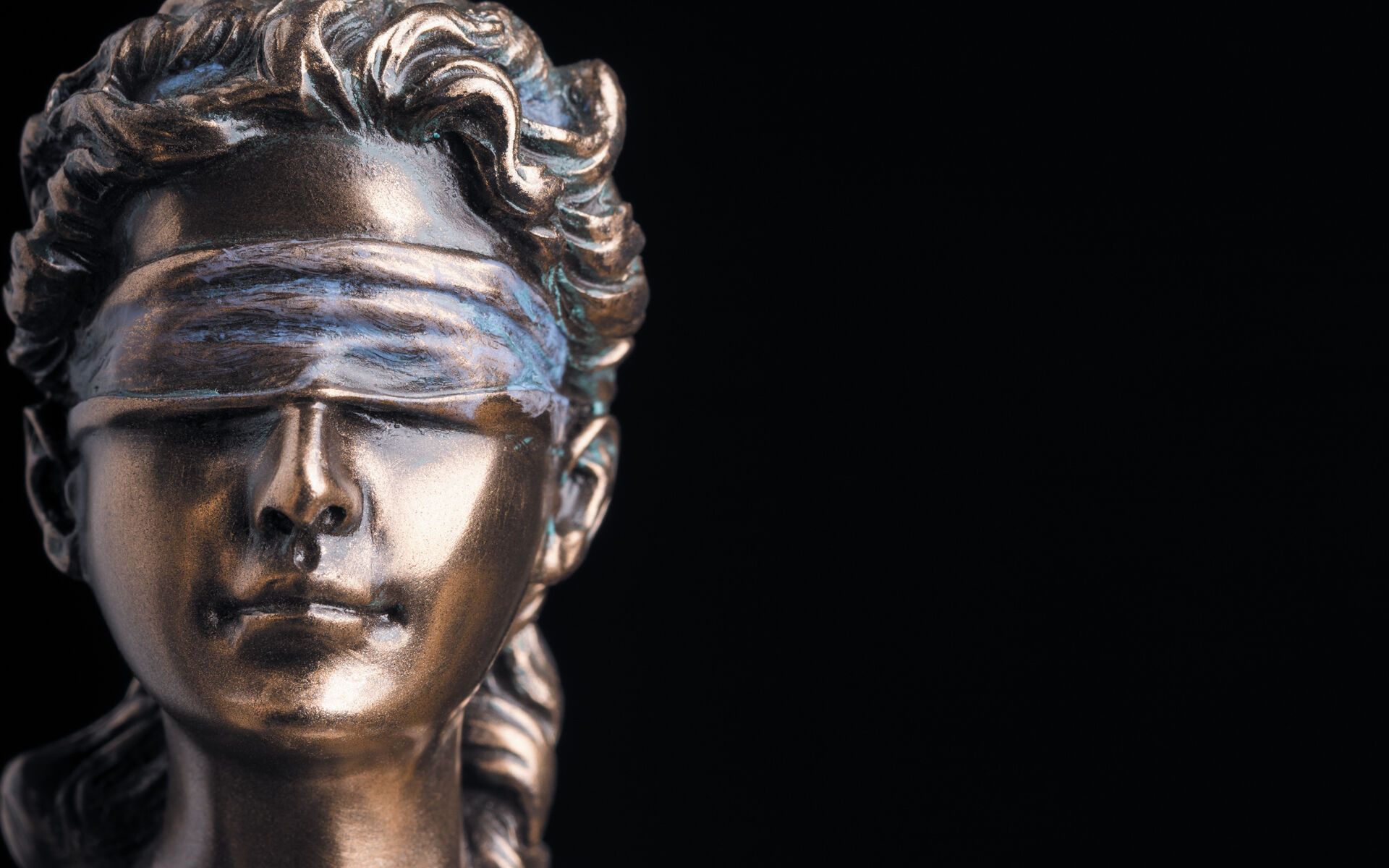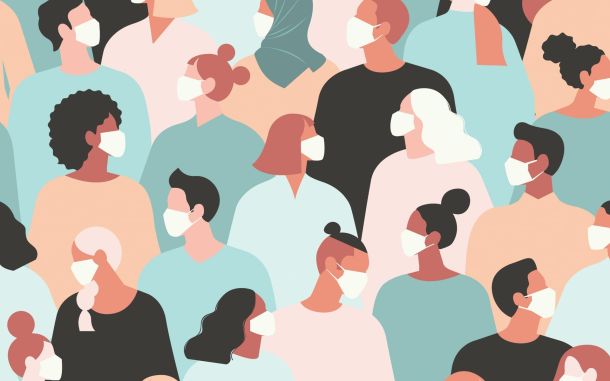The Veil of Ignorance

In This Article
-
The For Rawls, justice means fairness of the initial conditions. The point of his primal choice is that it takes place behind a “veil of ignorance.”
-
With Rawls, man in the primal situation does not know his future social position (class, standing), gender, ethnicity, religion, etc., but also personal characteristics and talents are unknown to him.
-
Rawls is not fundamentally in favor of an equal distribution of goods. The situation is different for rights and freedoms, but also for opportunities, such as access to education and public office.
In a March 11, 2021, interview with Philosophy Magazine, Karl Lauterbach, now Germany's health minister, concluded, "Corona policy is covered by Rawls." Lauterbach, who advocates for limiting freedoms in favor of health protection during the current pandemic, had studied with Rawls in the 1990s. John Rawls, who would have turned 100 in 2021, is one of the most influential philosophers of the 20th century. His Theory of Justice was published 51 years ago.
Personal experiences may have contributed to the fact that Rawls devoted himself almost exclusively to the topic of justice (his second main work deals with international law). He came from a well-to-do family and enjoyed a private school education. He fell seriously ill twice in his childhood but survived while two siblings died. Rawls felt this was an undeserved privilege. In addition, he had personal experiences as a soldier in the war against Japan. He considered the dropping of the atomic bombs on Hiroshima and Nagasaki to be unjust, as he believed the war would have been won even without them.
The ancient understanding of justice
Rawls' conception of justice has little in common with ancient virtue ethics, such as that of Aristotle. Virtue here means something like fitness to achieve an end (télos) inherent in a thing. Who should get a flute? For Aristotle, it is just to give it to the person who plays it best, because the purpose of the flute is to be played well. The fact that people enjoy its sound and thus benefit from it is secondary. Rather, the idea of merit plays a role.
With Plato, justice (dikaiosýne) means that all soul forces (reason, courage, desire) fulfill the activity assigned to them in the correct measure given by reason and thus fulfill the virtues of wisdom, bravery, and moderation. But justice implies also having the "right" inner order of the soul forces, as there is a "right" outer order, the cosmos ruled by the logos. The goal of justice, taken for granted, is the attainment of happiness (eudaimonia).
Kant's categorical imperative
Rawls' thinking, on the other hand, bears certain similarities to that of Immanuel Kant. With the categorical imperative, Kant had formulated a general rule on the basis of which personal or collective (traditional) principles of action are to be examined: “Act only according to that maxim whereby you can, at the same time, will that it should become a universal law." This imperative demands the generalizing of the personal: my norm must apply to everyone. For example: you shall not kill or lie. The similarity with the golden rule, which is based on the reversibility of actions, is obvious: "Do not treat others in ways that you would not like to be treated."
Kant is not a utilitarian or consequentialist—i.e., someone who focuses on benefits or consequences. He is not concerned with advantages for society nor with the consequences of an action, but solely with the internal consistency of a will that declares itself to be good.
The original position in Rawls
Whereas Kant's imperative represents an (ethical) norm of the verification of real (moral) rules of conduct originating in the living world, Rawls assumes an “original position,” a primal situation in which a rational subject oriented to self-interest must decide on a social constitution. In this way, he joins the contractarian thinking of the modern era, whose best-known representatives are Hobbes, Locke, and Rousseau. This had led to very different results, ranging from the authoritarian state (Hobbes) to the liberal state with separation of powers (Locke) to a state oriented to the common good (volonté générale) in Rousseau.
While the classical contract theories wanted to justify the emergence and thus the legitimacy of states, Rawls is only concerned with their institutional configuration and, in particular, with how economic life (markets, wealth, and income) can be fairly regulated in them. For him, justice means fairness of the initial conditions. The point of his primal choice is that it takes place behind a “veil of ignorance.” This image is reminiscent of the allegorical representation of Justitia, who makes her legal judgment blindfolded—that is, "without regard to the person." The blindfold thus ensures impartiality.
With Rawls, man in the primal situation does not know his future social position (class, standing), gender, ethnicity, religion, etc., but also personal characteristics and talents are unknown to him [1]. Furthermore, he also does not know how often certain positions in society will be occupied—for example how many rich, how many poor, and how many middle-class people there will be. His choice is therefore not made under risk but under uncertainty. In a sense, it is a lottery, not a chess game, in which one must consider the behavior of other participants and calculate the best possible outcome. This represents a major preliminary decision against utilitarianism, which was dominant in the Anglo-Saxon world in his time. One variety of this doctrine holds that a society is just if it maximizes total and, consequently, average, utility. Determining this maximum utility, however, is impossible under Rawls's specifications, since it presupposes that one can form the product of social position and "wealth" (benefits of all kinds). At most, one could assume that each of the possible social positions is equally probable (here, 1/3). However, this implies the completely unrealistic assumption that the number of kings (billionaires) and the number of slaves (unemployed, low-wage workers) would be equal.
Behind the rejection of utilitarianism lies a genuine ethical principle. According to Kant, man possesses dignity insofar as he is never only a means (e.g., an employee working for a company), but always also an end (a moral subject whom I must not deceive, etc.). Utilitarianism in the sense of the greatest happiness of the greatest number would mean, however, to instrumentalize a human being for the common good if necessary—for example, to withhold rights from him, if the loss of freedom is (over-)compensated for by the good of others.
Two principles
Rawls holds that, given ignorance of themselves, people would choose the following two social principles on rational grounds (i.e., without being driven by envy):
First principle: Each person is to have an equal right to the most extensive total system of equal basic liberties compatible with a similar system of liberty for all.
Second principle: Social and economic inequalities are to be arranged so that they are both: (a) to the greatest benefit of the least advantaged, consistent with the just savings principle, and (b) attached to offices and positions open to all under conditions of fair equality of opportunity [2].
In this context, the goods falling under the first principle, namely freedoms, are superior to those falling under the second—(a) income and wealth and (b) opportunities—and must not be impaired.
A rational person, Rawls argues, would decide according to the maximin rule in the face of complete uncertainty. He will not choose the state that promises him the most money, the most power (billionaire, king), but will take his orientation at the lower end and choose the state that grants the most rights, the best opportunities, and the highest income to the worst off. Not knowing what his future situation will be, he will seek to maximize the minimum because he shuns risk. As a loser in the lottery, he would eventually find himself homeless on the street.
With the first principle, Rawls specifies the freedoms of Western democracies (free elections, freedom of speech, assembly, religion, etc.). It states that one must compare the situation of the respective worse off in a "system of rights." For example, with regard to religious freedom, Rawls would argue that a fundamentalist who wants to establish a state religion is less disadvantaged in a secular state, where religion and state are separate, than a person who does not belong to the state church is in a "fundamentalist" state.
The second principle also involves organizing the state "to the greatest advantage" of the worst-off. Thus, it is not enough that the worst-off also have some benefit from the distribution of goods (for example, according to the trickle-down principle, which states that the money of the rich “leaks out” to the poor), but it must be the greatest in comparison with other distributions. Intergenerational equity (“consistent with the just savings principle,” no state may incur excessive debt at the expense of the next generation) must also be considered, with which Rawls already anticipated a debt brake. (However, he did not yet have the destruction of the environment in mind).
But there is a second side to the coin: differences, i.e., inequalities, are permissible if they improve the situation of the deprived. Rawls called this principle the “difference principle.” As another example, a market economy would be justified, despite all social and financial differences, if it provided the weakest in society with a higher income than an egalitarian state economy in which everyone pro forma owned the means of production (without ever being able to sell them). Whether this is actually so, however, is a matter for economists to decide.
Rawls is thus not fundamentally in favor of an equal distribution of goods. The situation is different for rights and freedoms, but also for opportunities, such as access to education and public office. Here, the state must intervene—for example, by increasing the supply of good schools or introducing universal health care (which still does not exist in the United States). However, for the most part it is not at all clear who the worst-off in a society are. During the Covid-19 pandemic, is it the elderly who get sick, or the children who can't go to school or visit friends? Does data protection (e.g., tracking cases of illness via apps) beat health protection? Or health protection the right to physical integrity (vaccination), freedom of assembly and movement (lockdown, breaking up demonstrations)? Incidentally, Lauterbach argues for the latter, citing Rawls, by pointing out that securing life is a prerequisite for being able to make use of freedoms at all. Whoever dies from Covid no longer has liberties to use.
Criticism
Philosophical theories suffer from a lack of ultimate justification. As a rule, they contain assumptions—e.g., about the "nature" of man—which are empirically disputed by others, such as with reference to presumed scientific evidence, personal observation, or introspection. Rawls, for example, considers humans to be risk-averse, which a philosophical optimist would probably doubt.
Above all, however, the conception of a primordial situation has been criticized. From a liberalist point of view, it lacks the historical dimension. According to this view, property goes back to free actions of individuals and thus to rights of entitlement (taking of nature, exchange, inheritance, donation, etc.) and has nothing to do with distribution patterns of any kind. Thus, even in an egalitarian society, new distributions (injustices) will emerge very quickly (which can be well observed in the game of Monopoly), necessitating constant new interventions.
Communitarians, on the other hand, emphasize the importance of community. With the fiction of a primordial choice and a veil of ignorance, behind which is chosen according to the rules of a calculus, a tabula rasa is arbitrarily established, from which neither solidarity nor substantial justice can be derived. Rather, the individual is involved in socially established cooperative practices that have internal rules, virtues, and purposes. In the background of these considerations is Hegel's concept of "Sittlichkeit" (ethical life). Sittlichkeit implies more than an abstract system of (moral) norms, as conceived by Rawls. It is the form of life passed on by a community, which also includes religions with their canons of values.
Finally, especially in Germany, there is the position of discourse ethics, whose most prominent representative is Habermas. It differs from Rawls' original situation in that it is not an abstract calculation that decides on justice but a discourse free of domination—a deliberation in which everyone can participate as a speaker equally but in which, turned against communitarianism, traditional practices, discourses, and virtues can also be questioned. Even if such a discourse does not take place in reality, so the assumption goes, it is implicitly presupposed in every utterance insofar as it lays claim to validity. Where Rawls considers the maximin principle to be generally agreeable, Habermas believes in the “unconstrained compulsion of the better argument” and the self-commitment of speakers to truth and reason. However, in view of the testy public debates, especially those around fake news that we are currently experiencing, this position also seems doubtful. One might suspect that they are rather "monologues" for the assertion of interpretive power, which, moreover, do not end in agreement but in the audience’s exhaustion.
Notes
- From a moral philosophical point of view, this assumption can be justified by the fact that neither genetic endowment (nature) nor environmental conditions such as education and social milieu (nurture) can be attributed to merit. From this it should follow that also "strength of will" and "weakness of will" and consequently the use I make of my abilities are morally arbitrary. Diligence, decisiveness, resilience, etc., which are crucial for developing talents, would thus also not be in the hands of the individual. However, Rawls seems to be reluctant to accept this consequence, since it would have far-reaching consequences for the punishment system, for example.
- John Rawls (1999): A Theory of Justice. Revised Edition. Cambridge, Massachusetts, p. 46, p. 266.









